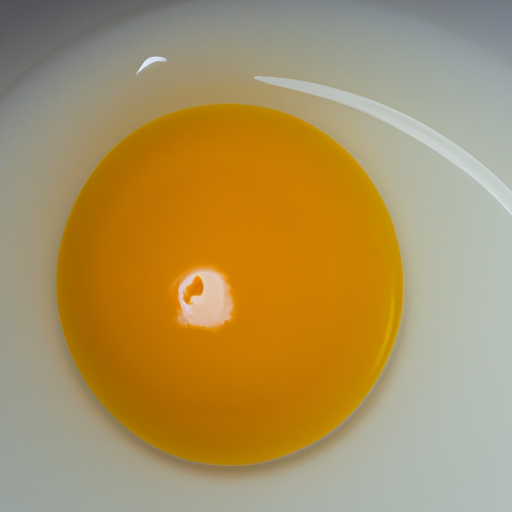If you’ve ever wondered how to keep your freshly laid chicken eggs tasting their best for longer, you’re in luck. In this article, you’ll discover the best way to store fresh chicken eggs to ensure extended freshness. Whether you raise your own chickens or simply enjoy the taste of farm-fresh eggs, these tips will help you maximize the shelf life and maintain the quality of your eggs, so you can savor them in all their deliciousness for as long as possible.
Determining egg freshness
Performing the float test
One of the easiest ways to determine the freshness of an egg is by performing a simple float test. Fill a bowl or glass with water and gently place the egg into it. If the egg sinks to the bottom and lies flat on its side, it is extremely fresh. If it stands upright on the bottom with the wider end pointing upward, it is still fresh but not as recently laid. However, if the egg floats to the top of the water, it is no longer fresh and should be discarded.
Checking the Julian date
Another method to determine the freshness of an egg is by checking the Julian date. Each egg carton comes with a three-digit number called the Julian date, which represents the day of the year the eggs were packed. For example, January 1st is represented by 001, and December 31st is represented by 365. By referring to a Julian date chart, you can determine how fresh the eggs are based on the packing date. This method is especially useful if the eggs are not individually stamped with a “best before” date.
Inspecting the shell and yolk
Examining the shell and yolk of an egg can also give you an idea of its freshness. Fresh eggs typically have a smooth and clean shell, free from any cracks. The yolk should be round and firm, with no signs of discoloration or abnormalities. A flat yolk or a yolk that breaks easily may indicate a less fresh egg. However, it’s important to note that appearances alone may not be fully indicative of freshness, so it’s best to use additional methods, such as the float test or Julian date, to confirm the egg’s freshness.
Noting any strange odors
When determining the freshness of an egg, it’s crucial to pay attention to any strange odors coming from the egg. Fresh eggs should not have any unpleasant or foul smells. If you detect a rotten or sulfurous odor, it is a strong indication that the egg is spoiled and should be discarded. Trust your sense of smell when it comes to evaluating the freshness of eggs, as it can be a reliable indicator.
Refrigeration
Temperature considerations
The temperature at which eggs are stored plays a significant role in preserving their freshness. Eggs should be stored at a consistent temperature of around 40°F (4°C) or below. Avoid storing them in the refrigerator door or near the back of the fridge where temperature fluctuations are frequent. The ideal temperature range ensures that the eggs stay fresh for a longer period.
Choosing the right spot in the fridge
Selecting the right spot in the fridge for storing eggs is also important. Place them on a shelf rather than in the door compartments. The door is more prone to temperature fluctuations due to frequent opening and closing, which can compromise the eggs’ quality. It is advisable to keep them in their original container or an egg tray to provide extra protection and prevent them from rolling around.
Using an egg tray or container
Using an egg tray or container helps maintain the eggs’ position, preventing them from moving excessively and potentially cracking against each other. If your fridge doesn’t have an egg tray, consider purchasing one or use a covered container with compartments specifically designed for eggs. This simple addition can make a significant difference in preserving egg freshness.
Avoiding temperature fluctuations
Temperature fluctuations can negatively impact egg freshness, so it’s essential to avoid exposing them to sudden changes in temperature. Limit the duration of opening the refrigerator door and avoid placing hot or warm items near the eggs. By minimizing temperature fluctuations, you can ensure that the eggs remain fresh and avoid potential spoilage.
Natural room temperature storage
Ideal conditions for room temperature storage
If you prefer not to refrigerate your eggs, storing them at room temperature is an option. To maintain egg freshness in this scenario, it’s crucial to ensure ideal conditions. The room temperature should be consistently between 70°F (21°C) and 75°F (24°C). Any lower or higher temperature may lead to a shorter shelf life for the eggs.
Duration and freshness trade-off
Storing eggs at room temperature results in a trade-off between duration and freshness. While eggs stored this way may keep their freshness for a shorter period compared to refrigeration, they can still be safely consumed within a certain timeframe. It is important to consume room temperature stored eggs within a week to ensure maximum freshness.
Protecting the eggs from direct sunlight
When storing eggs at room temperature, it’s essential to shield them from direct sunlight. Exposure to sunlight can accelerate the breakdown of certain components in the egg, potentially impacting its freshness. Keep the eggs in a cool, shaded area to avoid direct sunlight and help maintain their quality.
Avoiding potential contamination
Since eggs stored at room temperature are not refrigerated, extra care must be taken to avoid potential contamination. Store the eggs away from strong-smelling foods, cleaning chemicals, or any other substances that could permeate the shell and impact the egg’s quality. It’s also important to handle the eggs with clean hands and prevent contact with any surfaces or utensils that may introduce bacteria.
Cleaning and handling
Preventing bacterial contamination
Preventing bacterial contamination is crucial for maintaining the freshness and safety of eggs. Washing and sanitizing hands before handling eggs can significantly reduce the risk of introducing harmful bacteria. Ensuring that cooking utensils, countertops, and any surfaces that come into contact with raw eggs are thoroughly cleaned and sanitized is equally important.
Avoiding washing eggs before storage
Contrary to popular belief, eggs should not be washed before storage. The natural protective coating called the “bloom” that covers the eggshell helps seal the pores and prevents bacteria from entering. Washing eggs can remove this protective coating, making the eggs more susceptible to contamination and faster deterioration. It’s best to only wash eggs right before use.
Removing visible dirt and feces
While washing eggs before storage is not recommended, it is essential to remove any visible dirt or feces that may be present on the shell. Gently dry-clean the eggshell with a dry cloth or brush to remove any debris. This practice helps maintain cleanliness without compromising the egg’s natural protective coating.
Proper egg handling techniques
Proper handling of eggs is crucial for preserving their freshness and preventing contamination. Always handle eggs with clean hands and avoid dropping or roughly handling them. If any shell particles fall into the egg while cracking it, discard it to prevent potential bacterial contamination. Develop good egg handling habits to ensure the eggs remain fresh and safe for consumption.
Preserving egg quality
Using a protective coating
To preserve egg quality for extended periods, it’s possible to create a protective coating on the eggshell. One method is to use food-grade mineral oil and gently coat the eggs with a thin layer. The mineral oil helps seal the pores in the shell and slows down moisture loss, maintaining the freshness of the eggs.
Applying mineral oil or commercial egg preservative
Applying mineral oil is an effective option for preserving egg freshness. Alternatively, commercial egg preservatives are available that can achieve the same effect. Follow the product instructions carefully to ensure proper application. These protective coatings create a barrier that extends the shelf life of the eggs.
Avoiding exposure to moisture
To preserve the freshness of eggs, it is important to minimize their exposure to moisture. Moisture can penetrate the shell, facilitating bacterial growth and compromising the egg’s quality. Keep eggs in a dry environment and avoid storing them near sources of moisture, such as vegetables with high water content.
Discarding damaged or cracked eggs
Damaged or cracked eggs should be discarded immediately, as they are prone to faster deterioration and increased bacterial contamination. Such eggs are more susceptible to moisture loss and the entry of pathogens. Regularly inspect the eggs for any cracks or damage and remove them from storage to maintain the overall freshness of the batch.
Freezing eggs
Understanding the limitations of freezing eggs
Freezing eggs can be a great option for extending their shelf life, but it’s important to understand the limitations. When eggs are frozen, the texture of the yolk may change, becoming thicker and less fluid. Therefore, frozen eggs may not be suitable for certain recipes that rely on the yolks being liquid or easily incorporated.
Cracking and freezing in ice cube trays
One way to freeze eggs is by cracking them into ice cube trays. Beat the eggs lightly to mix the whites and yolks, then pour the mixture into the compartments of the tray. Freeze until solid, then transfer the frozen egg cubes into a labeled freezer bag. This method allows you to easily measure and thaw the desired amount of eggs for various recipes.
Beating and freezing as scrambled eggs
If you frequently use scrambled eggs, you can beat the eggs as if you were making scrambled eggs and then freeze the mixture. This way, you can defrost the mixture and directly cook it without the need for additional preparation. This method is convenient for quick and easy scrambled egg meals.
Labeling and proper storage of frozen eggs
When freezing eggs, it’s essential to label the containers or bags with the date of freezing and the number of eggs inside. This helps keep track of their freshness and prevents confusion. Store the frozen eggs in a freezer set at 0°F (-18°C) or below, as higher temperatures may compromise their quality over time.
Dehydrating eggs
Preparing for dehydration
Dehydrating eggs is a method that allows for long-term storage while retaining their nutritional value. To prepare for dehydration, crack the eggs and beat them well to combine the whites and yolks thoroughly. This ensures an even mixture and optimal results during the dehydration process.
Blanching and cooling the eggs
Before dehydrating, blanching the eggs can help destroy any bacteria that may be present. Bring a pot of water to a boil and carefully lower the eggs into it. Allow them to boil for approximately one minute, then remove and immediately cool them in ice water. This blanching step ensures a safer dehydration process.
Dehydrating methods (oven, dehydrator, freeze-drying)
There are various methods for dehydrating eggs, including using an oven, dehydrator, or freeze-drying. The oven method involves spreading the beaten eggs on a baking sheet and drying them at a low temperature. A dehydrator uses controlled heat and airflow to dry the eggs evenly. Freeze-drying is a more complex and costly method that preserves the eggs by removing moisture under vacuum conditions. Choose the method that best suits your resources and needs.
Packaging and storing dehydrated eggs
After dehydrating the eggs, they should be properly packaged for storage. Use airtight containers, such as jars or vacuum-sealed bags, to prevent moisture absorption. Make sure the containers are clean and dry before adding the dehydrated eggs. Store them in a cool, dry place away from direct sunlight. Properly dehydrated and stored eggs can last for several months.
Pickling eggs
Selecting suitable pickling solutions
Pickling eggs is a popular preservation method, offering unique flavors and extended shelf life. There are various pickling solutions to choose from, such as vinegar-based brines or solutions with added spices and herbs. Experiment with different recipes to find the flavors that appeal to you.
Preparing the eggs for pickling
Before pickling, hard-boil the eggs by submerging them in boiling water for approximately 10 minutes. Once cooked, remove them from the heat and let them cool. This process ensures that the eggs are properly cooked and ready for pickling.
Brining and flavoring options
After hard-boiling, place the eggs in a jar or container and cover them with a brine solution of your choice. The brine should consist of vinegar, water, and salt, with additional ingredients for flavor if desired. Allow the eggs to sit in the brine for at least a few days, allowing the flavors to develop and the pickling process to take effect.
Long-term storage considerations
When pickling eggs, it’s essential to consider long-term storage. Properly sealed and stored pickled eggs can be kept in the refrigerator for several weeks, if not longer. However, it’s important to monitor the eggs for any signs of spoilage, such as a foul odor or mold growth. Discard any pickled eggs that show signs of deterioration.
Using mineral oil
Applying mineral oil on clean eggs
Using mineral oil as a protective coating on eggs is a method to extend their freshness and quality. Ensure that the eggs are clean and free from any visible dirt or debris. Gently apply a thin layer of food-grade mineral oil onto the shell of each egg, taking care not to oversaturate or use excessive amounts.
Preserving freshness and preventing air exchange
The application of mineral oil creates a protective seal on the eggshell, preserving freshness and preventing air exchange. It helps slow down both moisture loss and the entry of outside air, which can negatively affect the egg’s quality. The oil acts as a barrier and helps maintain the egg’s internal environment.
Storing oiled eggs properly
To ensure the effectiveness of the mineral oil, it’s important to store the oiled eggs properly. Keep them in a cool, dry place away from direct sunlight and potential temperature fluctuations. It is advisable to store the oiled eggs with the pointed end down to maintain their freshness for an extended period.
Potential drawbacks of using mineral oil
While mineral oil can be effective in preserving egg freshness, it does have potential drawbacks. Some people may find the slight oiliness on the shell unpleasant, especially if they plan to consume the eggs without washing them. Additionally, the oil may interfere with the natural exchange of gases through the shell, potentially impacting the development of the egg if used for hatching purposes. Consider these factors before deciding to use mineral oil on eggs.
Egg preservation alternatives
Making powdered eggs
One alternative to preserving eggs is by making powdered eggs. This involves dehydrating the eggs and grinding them into a fine powder. Powdered eggs have a long shelf life and can be reconstituted with water for various recipes. They are a convenient option for extended storage and excellent for camping or emergency situations.
Liquid pasteurized eggs
Liquid pasteurized eggs are another method of preserving egg quality for an extended period. These eggs undergo a pasteurization process, which kills bacteria present on the shell and in the egg. They are then packaged in liquid form, allowing easy measuring and use. Liquid pasteurized eggs are a safe and convenient option, especially for those concerned about food safety.
Opting for pre-packaged egg substitutes
Pre-packaged egg substitutes are commercially available and can be used as a convenient substitute for fresh eggs. These products are made from real eggs and are pasteurized to ensure their safety. They offer a longer shelf life than fresh eggs, making them suitable for those seeking extended storage options.
Considering canning or jarring methods
Canning or jarring eggs is an alternative preservation method that involves pressure canning or water bath canning. The eggs are carefully placed in sterilized jars and processed using heat to ensure their safety and prolonged shelf life. This method requires specific canning procedures and equipment, so be sure to follow proper guidelines and consult reputable sources for instructions.
By following these various methods and techniques, you can ensure that you store fresh chicken eggs for extended freshness. Consider the storage options, preservation methods, and your specific needs to determine which approach works best for you. Whether you choose refrigeration, room temperature storage, freezing, dehydration, pickling, or other alternatives, the goal is to maintain the eggs’ quality and safety for as long as possible.




